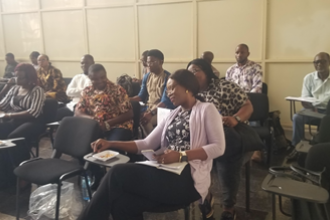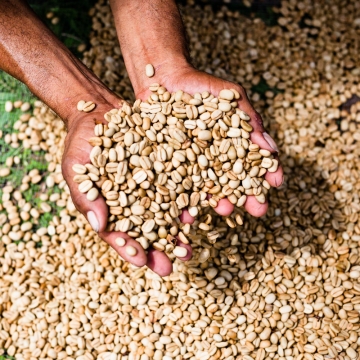Participatory mapping and sustainability evaluation using the main agroecology structure: A study of cocoa and livestock agroecosystems in Caquetá Colombia
In Colombia's Caquetá department, analyzing the social and environmental aspects of cocoa and livestock farming is crucial for designing sustainable food systems that promote peace, climate resilience, and reduced emissions. The Main Agroecological Structure (MAS) method evaluates the design, connectivity, and management of these farms, considering both ecological and social factors. This allows for the development of strategies that mitigate climate change while improving livelihoods.
Participatory characterization of cocoa and livestock agri-food systems in Caquetá: A community perspective.
The department of Caquetá in the Colombian Amazon plays a crucial role in addressing greenhouse gas (GHG) emissions from food systems, primarily stemming from land use changes, such as the conversion of forests into pastures, and agricultural practices. Despite 72% of the department still being covered by forests, participatory research in two municipalities, Montañita and Belén de los Andaquíes, reveals a diverse agrifood landscape, focusing on cocoa and livestock.

EfD Nigeria researchers trained on interdisciplinary approaches to research
Researchers at EfD Nigeria have received training on how to integrate research methodologies between the areas of climate change, food systems, and environmental sustainability to solve complex…
Joint environmental and social benefits from diversified agriculture
Agricultural simplification continues to expand at the expense of more diverse forms of agriculture. This simplification, for example, in the form of intensively managed monocultures, poses a risk to keeping the world within safe and just Earth system boundaries.
Disposal of spent oil into soils around auto parts markets impacts heavy metal concentrations and poses a potential ecological risk
AbstractNigeria is facing the problem of soil degradation as a result of continuous deposition of spent oil in the soil. The physiochemical properties, including heavy metals concentrations, of spent oil contaminated soils and adjacent control soils were investigated at 0–15 and 15–30 cm depths at Ladipo and Berger auto-mobile Markets in Lagos, southwest Nigeria. The soils were collected in triplicate and analyzed in a 2 (location) * 2 (study site) * 2 (soil depth) factorial experiment.

EfD Nigeria trains graduate students on Randomized Control Trial research designs
EfD Nigeria recently concluded a three-day workshop for graduate students and early career researchers in Randomized Control Trial (RCT) research design. The workshop, held from April 29 to May 1…

Uzbekistan measures its green growth strategy
EfD researcher and WinEED member Etenesh Asfaw, based in Moldavia, has led a study applying a battery of OECD indicators of green growth of Uzbekistan’s economy. She explained the main findings and…
Pagination
- Previous page
- Page 5
- Next page

